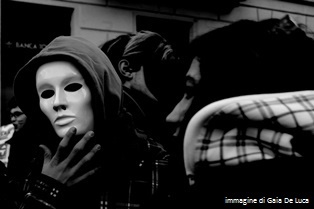“Diritto di punire” o “Potere di morte”?: crimine, violenza e giustizia in “Mineirinho” di Clarice Lispector
DOI:
https://doi.org/10.13130/2035-7680/7184Palabras clave:
Letteratura brasiliana, crimine, alterità, corpo, identitàResumen
This essay analyses the concepts of crime and justice presented by Clarice Lispector in “Mineirinho”. This story was first published in June 1962 in the magazine Senhor with the title "Uma grama de radium-Mineirinho” and was later included in the section "Fundo de Gaveta” of the collection of stories A Legião Estrangeira (1964).
The narration of Clarice Lispector is based on a true story happened in Rio de Janeiro the night between 30 April and 1 May of 1962: a Cariocan criminal, José Miranda Rosa, a.k.a. Mineirinho, was ambushed and shot dead by police.
Although Mineirinho had committed many crimes, his violent and tragic death aroused public indignation, and the condemnation of the cruelty with which the State exercised the right to punish those who broke the law.
In Lispector’s text, the emotions aroused by the violent death of Mineirinho are expressed through a reversal of the viewpoints that marks a sort of transition from the objectivity of the facts to the narrator's subjectivity. Through the identification with the Other, Lispector offers a critique to the mechanism of power and tries to redefine the concepts of crime and justice.
In a historical, political and cultural context marked by violence and social exclusion such as Brazil, Mineirinho embodies a marginalized humanity victim of a Power that exerts full control over life.
Lispector repudiates a vindictive justice which protects the interests of the privileged few at the expense of those who are on the margins of society. She empathises with the Other and expresses a deep compassion that involves the reader and leads to a reflection on the common destiny of mankind of which Mineirinho represents a tragic emblem.




